
Hawaii & Tahiti
Choose a Circle Hawaii itinerary beginning and ending in San Diego or Vancouver, British Columbia. Or give yourself an extended escape on one of our Tahiti and Marquesas Islands cruises and enjoy even more luxurious days at sea and discover the remote South Pacific islands of Paul Gauguin and James Cook.
Featured Ports
Cruise to Bora Bora
After the end of World War II, some American soldiers stationed on Bora Bora didn't want to leave. In fact, they stayed until their families back home began complaining. It's hard to blame the soldiers. James Michener called the island the most beautiful in the world, and used the island as inspiration for his Bali Hai. The island's mountains, beaches, and lagoons are the default when you think ""tropical paradise."" Cruise visitors can dive into the clear waters of the lagoon, take a jeep tour into the high country, or relax on Matira beach and wonder what would happen if you stayed.
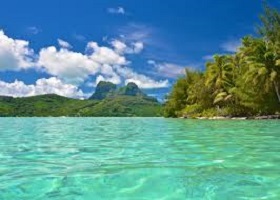
Cruise to Hilo
The east coast of the island of Hawaii throws out its arms, sticks its face into the moisture-heavy trade winds, and gathers all that wet air in to water its gardens, feed its waterfalls, and quench its volcanoes. Lili'uokalani Gardens, an authentic Japanese garden, sits on the shore of Kuhio Bay and contains 30 acres of pagodas, ponds, and picnic areas. Inland, along the furrowed lower reaches of Mauna Kea, Kolekole stream plunges 442 feet over a cliff at Akaka Falls. Closer in to town cruise travelers can see Rainbow Falls, an 80-foot drop. And it's just a short drive down the road to Kilauea, that fiery rent in the side of Mauna Loa.
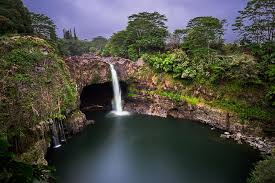
Cruise to Honolulu
The ghosts of Waikiki ride surfboards. Honolulu's signature beach was long a retreat for longboarding royals, but today, the gentle waves carry many a happy, uncoordinated visitor, learning to surf. Waikiki tells one story of the Hawaiian capital. The dormant volcano of Diamond Head tells another. Pearl Harbor another. The city is a tapestry of commerce, natural beauty, and war history. Pearl Harbor made it an important way station for trans-Pacific trade, an ideal spot for a U.S. naval base, and of course, the military target that ignited American entry into World War II. Cruise travelers can see one part of that history at the USS Arizona Memorial and another at the Punchbowl military cemetery.
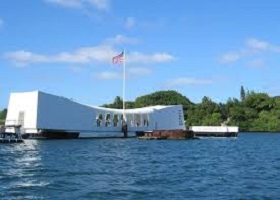
Cruise to Maui (Lahaina)
Lahaina was a battleground for warring chieftains and later the capital of a unified Hawaii under Kamehameha III. Long before that, though, there were the humpback whales. For millennia they'd migrate here in winter to calve and feed in the warm, protected waters. In the early 19th century, the whalers followed, and at times you'd see 300, 400, 500 whaling ships in Lahaina Harbor. The whalers would surge ashore and find Christian missionaries seeking to impose order on the chaos they made. Today, the town welcomes cruise visitors to its compact, pedestrian-friendly streets. There is a bounty of places to eat and shop (especially along Front Street) or just relax in the shade and catch the view.
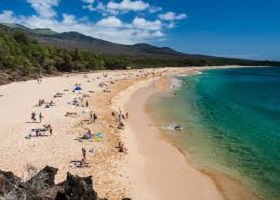
Cruise to Kauai (Nawiliwili)
The island is moving slowly west as the Pacific Plate passes over the Hawaii Hot Spot, which is currently constructing the Big Island away southeast. Time and rain will eventually wear the old volcano away, but right now, Kauai is basking in its golden years. Roughly circular, the island is a creased emerald wonderland. On the north coast, the flying buttresses of the Na Pali cliffs drop 4,000 feet to blue surf. In the interior, Mount Waialeale translates rain to endless waterfalls, and Waimea Canyon is grand. And on its fringes, Kauai offers cruise visitors countless beaches. Like Hanalei: all blond sand, green cliffs, and azure water.
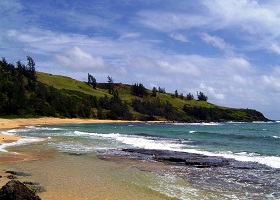
Cruise to Tahiti (Papeete)
Even if you've never been, you've probably been. All you need to have done is glance once at the work of a former French stock broker, tarp salesman, and Panama Canal laborer. The color that Paul Gauguin brought to canvas could have been lifted from the markets, beaches, and buildings of today's Papeete. Cruise visitors can soak in the vivid buzz of the Le Marche marketplace, walk the park along the waterfront, and hunt for a deal on black pearls. Meanwhile, the rest of the island is waiting. Stop by the romantic Vaipahi Garden and the fern-lined sea caves of the Mara'a Grotto, then do anything on, beside, or under the island's elysian lagoon.
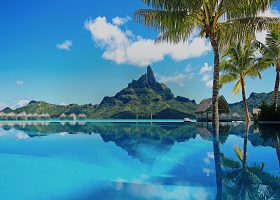
Cruise to Raiatea
Here was the capital of Polynesian empire. It was from Raiatea that the Polynesians launched their long canoes on epic explorations of the Pacific -- to New Zealand, Hawaii, Easter Island, and other parts of eastern Polynesia. Taputapuatea marae, the island's temple complex, was the command center for all this activity, as well as the Polynesian center of cosmology and religion. The marae is on the southeast part of the island, and you can explore the restored grounds. Other highlights for cruise visitors include the beach at Motu Nao Nao and the snorkeling at Opeha Point.
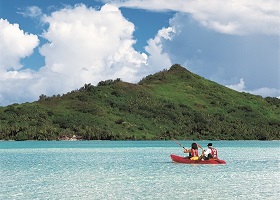
Best time to Visit
Sep to Apr

